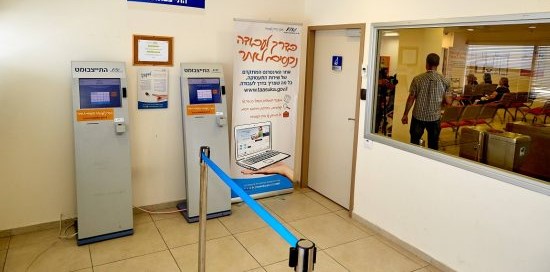More than one third (34%) of the 506,000 persons in Israel who received unemployment benefits for the month of April have been receiving such payments for 12-14 consecutive months, i.e., they’ve been jobless since the beginning of the start of the COVID-19 pandemic. This figure appeared in a study released by the research unit of the National Insurance Institute on Sunday, June 6. The Some 73% of the unemployed, or 370,000 laid-off workers, have been receiving benefits for six months or more.
The average unemployment benefit paid per day for April 2021 was NIS 180 (New Israeli Shekels, about 55 US$), with singles averaging NIS 158; married individuals getting NIS 191; women being paid NIS 166 and men receiving a daily average of NIS 194 ILS per day. The average daily payment for the young (aged18 to 24) was NIS 122 and for the unemployed from 35 to 54 years old, NIS 200. Of job seekers receiving benefits, about 51% were women, 56% were married and 32% were single, the report said.
By industry, hospitality and food services workers made up about 53% of those receiving benefits, while those in the arts, entertainment and leisure industry accounted for 31%. According a recent decision by Israel’s far-right government, after June 30 unmarried people under the age of 28 will no longer be eligible for unemployment benefits, and all new job seekers will be given a maximum number of days they are entitled to receive such benefits, based on their age and number of dependents.
According to the Adva Center, an Israeli NGO, during the COVID-19 crisis Israel’s wealthiest 1% received the most expeditious state protection and benefits. The Bank of Israel supported big corporations by purchasing NIS 15 billion worth of corporate bonds. This aid accounted for the fact that the Tel Aviv 90 Index of stocks increased by some 18% in value during the first year of the coronavirus pandemic while the real economy actually shrank.
Related: Unemployment in Israel Jumps to 800,000, 40% Increase since Jan 4



